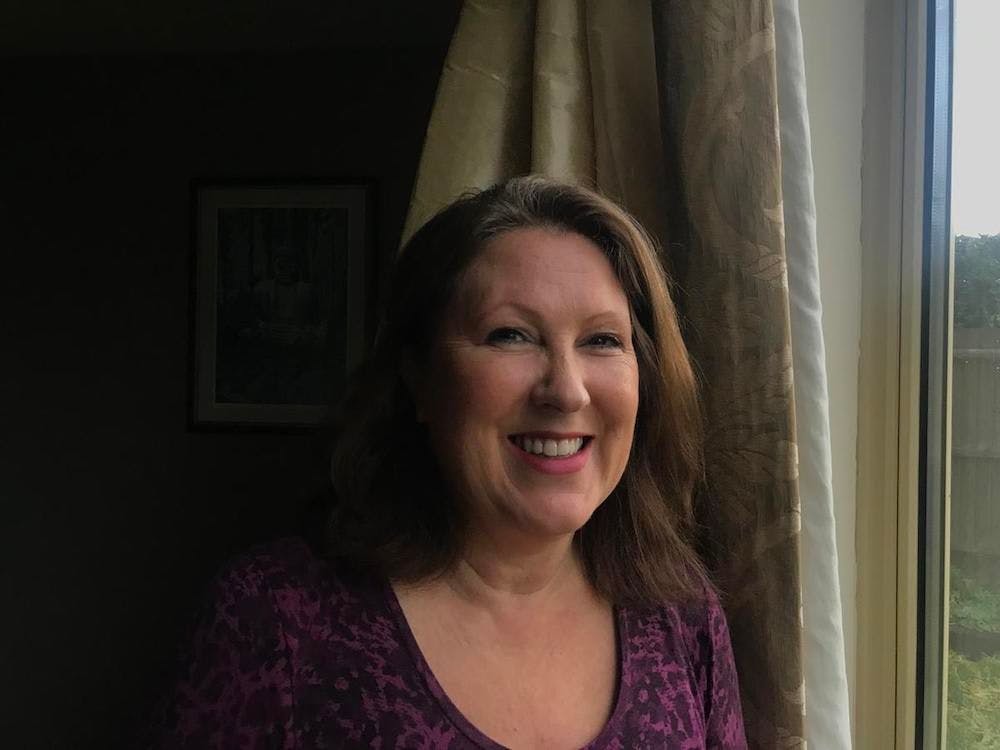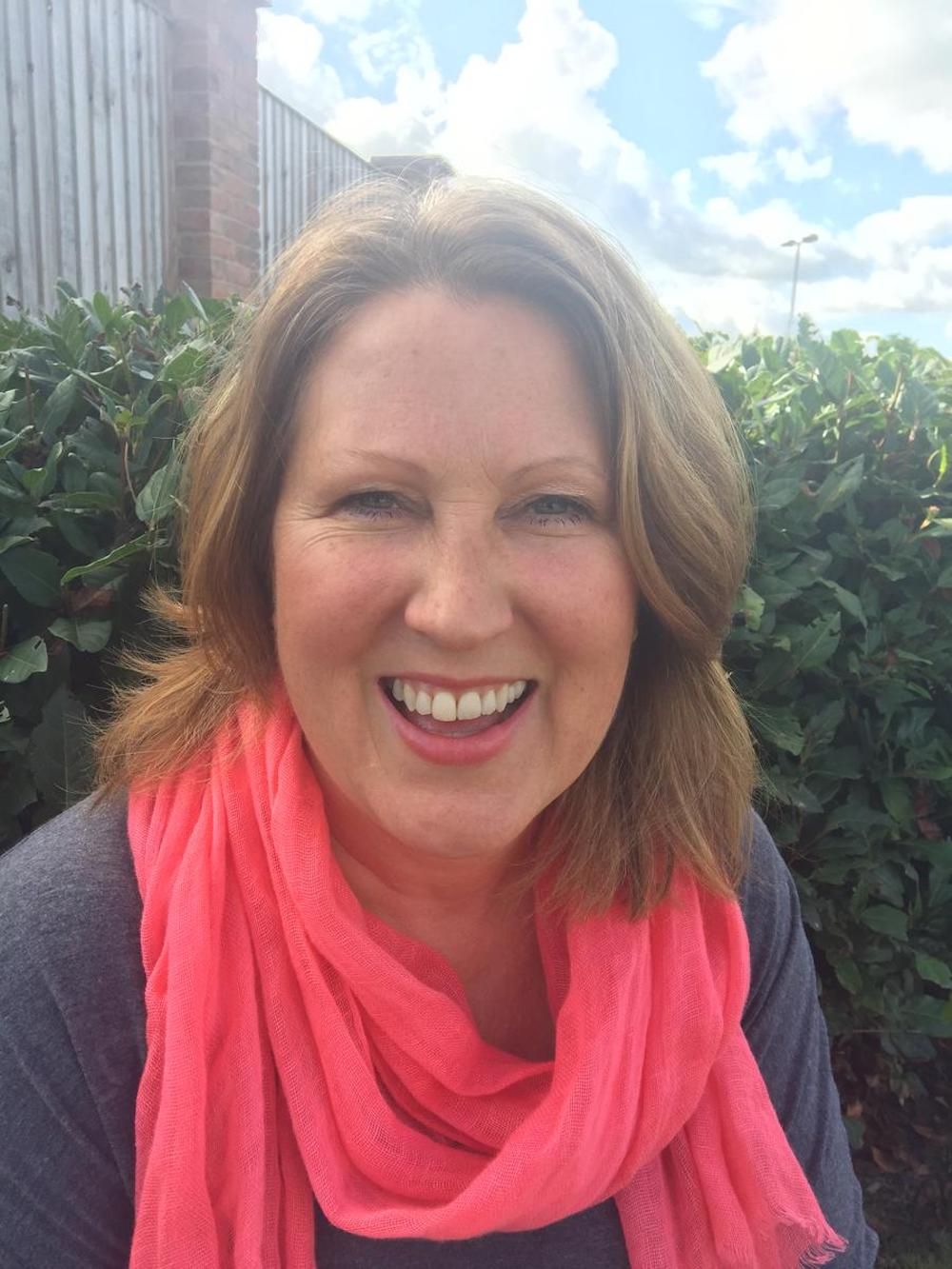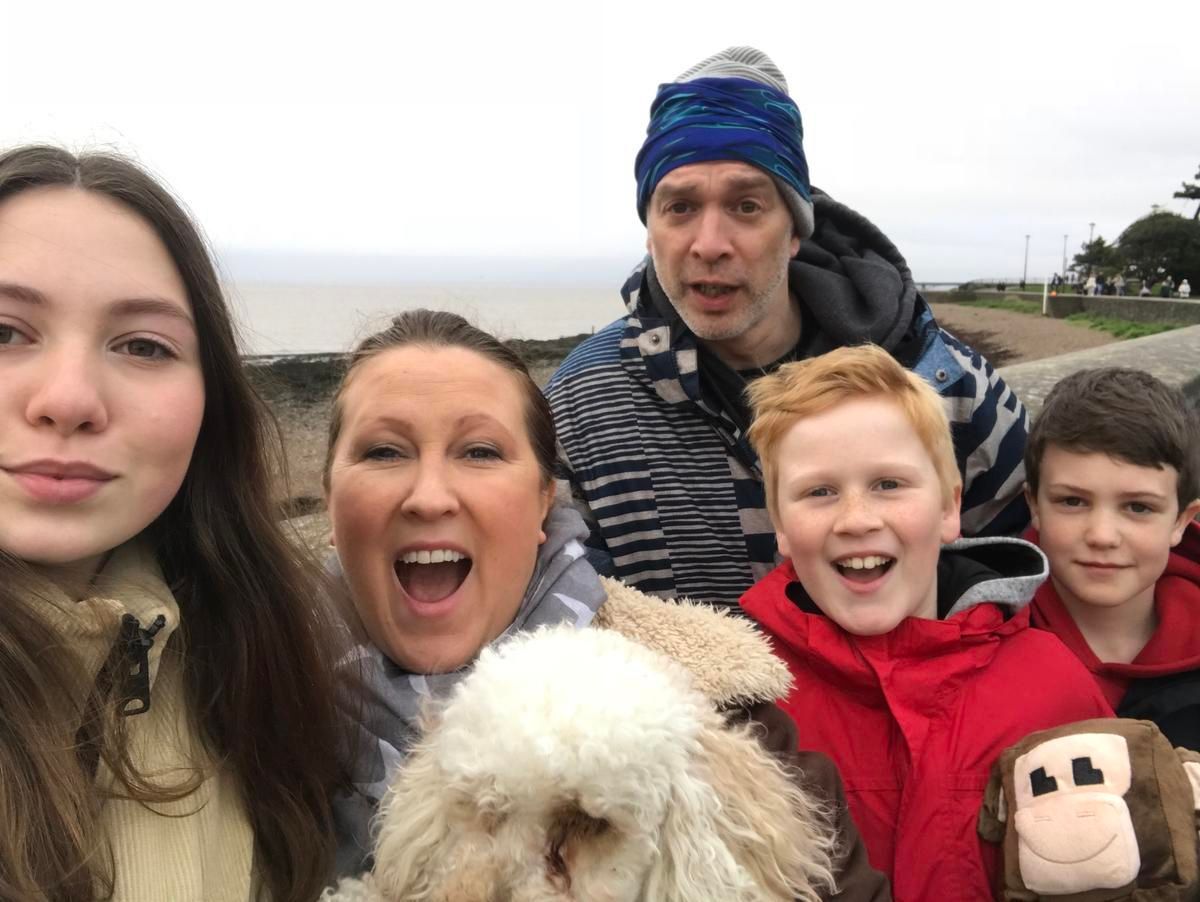Letting My Emotions Flow: Anne-Marie's story
updated on Jan 16, 2019

When her mother died, Anne-Marie Walby’s world turned upside-down; she was only five years old. Despite family around her, a lifetime of unprocessed grief started to catch up
It was a lazy Sunday morning as I awoke. I rolled over in bed to hug mum, and as I snuggled up ready for a smile or a hug, I realised she felt cold. I sat up. She was pale. She wasn’t responding to my tugs for attention. Her face was blue and pale, her lips a blue, almost purple, colour.
I went to find my brothers, and uttered the words: “I can’t wake mum; she won’t wake up.”
They stopped what they were doing, looked at each other and took charge. I remember being shuffled into my bedroom and told to get dressed.
There were people at the house – the doctor, two aunties, my father and brothers – but I felt that no one spoke directly to me for most of the morning. They may have done of course, because when I think back it’s mostly a blur, like a movie with muffled sound where you can’t really make out the conversation. It felt as if everyone was hushing and shushing, and conversing in whispers. They were very occupied, busy, fussing. I was just there, a part of it all, and yet not.
I recall arriving at my grandmother’s house later that morning, and being ushered in by auntie Eleanor, my father’s sister. She found grandma, and urged her to sit down, but before anything could be said, without any warning or advice I announced: “Mummy’s dead, she’s gone to heaven.” My grandmother fell into her seat. I was five years old.
That quiet Sunday morning, my life changed. It would never be the same again.

Anne-Marie Walby
It was 1970, and back then we didn’t really know much about child psychology, helping children grieve, emotional intelligence, or processing pain, and on top of that we were British – so we carried on, put on a brave face, and did the best we could get on with it.
Now, as an adult, I can’t imagine what must have gone through the minds and hearts of my relatives; they must have been lost to know what to do. How do you help a five-year-old cope with the loss of her mummy?
My childhood was mostly normal, based upon what I remember of it. The upside was I did well academically, was quite good at sport, and I enjoyed drama, music and theatre. The downside was that I was bullied a bit for being an academic, and children often called me a “bastard” because I was missing a parent – they didn’t understand the true meaning of the word.
I withdrew further and further into my own imaginary, safe world. I faked sickness so I could be alone in the sick room, I played hooky, and I kept myself to myself.
At home, no one really mentioned mum. Occasionally a person would say, “Oh you’re so like your mum, she was lovely,” but I didn’t know if this was true or not; I had nothing to compare their comments to. I had a few photographs and tiny, early memories here and there. One of the main times I saw and heard her name was when they announced her “anniversary” at church. This sadly was always connected to her death, and not her life.
Family life for me initially meant staying with my auntie and grandparents, for practical reasons. Dad was up and out early, and being just five I couldn’t be left for two brothers to get me to school. As time went by, my grandfather died, and quite soon after him, my grandmother. That left my aunt and I, and that’s how it remained. She never married, I became her family, and we lived as a pair.
How do you help a five-year-old cope with the loss of her mummy?
I had a good life. I was well cared for, with a good home, and a very large extended family. I also remember feeling very alone at times, and would get tearful at New Year, or hearing people sing ‘Happy Birthday’ to me. It was as if the tears just couldn’t stay inside, the flood gates would open, and they wanted to pour out.
As I got older, and I began to venture out into the world, my past began to affect my future.
I spent a great deal of my 20s being very drunk, very often, which led me to huge crying bouts. I couldn’t cope with rejection from boyfriends, and I couldn’t self-regulate my emotions. I’d get drunk again, and again.
I told myself I was a free, independent, modern woman looking for fun; that’s how I justified my casual sex-life, but really I was a sad, lonely girl who just wanted to feel loved.
My 30s were a time of healing, though. I was having a good life, I had achieved a lot in my work, and was living in central Europe doing a dynamic job full of travel and variety. But then I developed a phase of suffering spasms of bursting into tears. Friends would ask me what was wrong, but I didn’t know, I couldn’t explain. I was just really, really sad.
When I was 34, I lost a very dear friend very suddenly. He was just a friend, not a lover, and at 38 he was gone – a stroke. The pain I felt at his death was like my chest being ripped open. I hadn’t felt anything like it; I was in so much pain and sadness I didn’t know how I would go on.

Anne-Marie with her family
A few months on, one day I hit the emotional wall. I couldn’t function, I couldn’t face people. I was hiding from the world in my office, I was frozen and couldn’t cope with any of the normal routines. I was hiding behind heavy makeup to cover my tear-stained face, and hiding out behind my closed office door. At this point, a dear friend introduced me to a way forward.
Over the coming years, I learned so much about myself, how I think, what’s important to me, and most importantly I began to grieve the loss of my mother.
I visited psychics, spiritual healers, and a variety of emotional release therapies. I became an avid learner, training in self-help practices such as NLP, hypnosis, timeline therapy, and other mindset tools. I also began to journal; clearing my emotions and neural pathways via writing.
I began to design a future for myself, to dream again, and I got excited about living for the first time in a very very long time.
None of the events in my life were meant to cause intentional harm, but they were traumatic, and that little girl needed to grieve – and eventually heal.
My mum’s passing steered me on my journey to healing myself, which has taken me around the world; from living and working in Slovenia, to Hawaii for learning and coaching, California for more development, and many other places.
I have learnt to heal my wounds, and to be strong while also being gentle
I have met amazing people who have become mentors, teachers, friends. I have learnt to love life, people and adventures.
These days I am very clear about many things and, in particular, how I want to raise my children. They know about their grandma Mary; we have photos of her around the home, we discuss her, and chat to her photos as we do any other member of the family.
Today I am happy with my journey. I have learnt to heal my wounds, and to be strong while also being gentle. I have learned to trust myself and life, and I have learned to live and feel love, not just exist.
I have cried rivers and had horrific heartache, but I have learned to let the emotions flow because holding on to them was hurting me and holding back my life.
Once I realised I could change, I never stopped. I am constantly learning, growing and evolving. I love my life, and I love my mother with all of my heart.
My wish is that we treasure everyone, for life is so fleeting and precious.
Fe Robinson | MUKCP (reg) MBACP (reg), psychotherapist and clinical supervisor says:
Anne-Marie’s story is one of traumatic loss, and delayed grieving. Her five-year-old self was not able to process what was happening, and her unresolved suffering was released only by a later bereavement which brought it to the fore. Her courageous work to allow the grief to unfold and pass through, as she explored and developed herself, is a powerful reminder that we can heal and move past loss, that it is a process that takes time, and calls us to feel our emotions fully.

